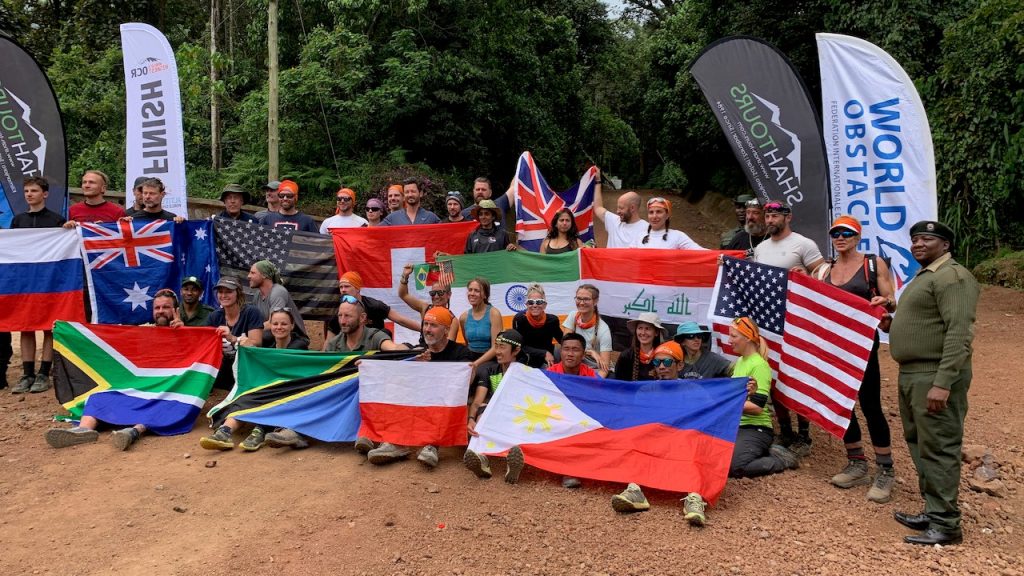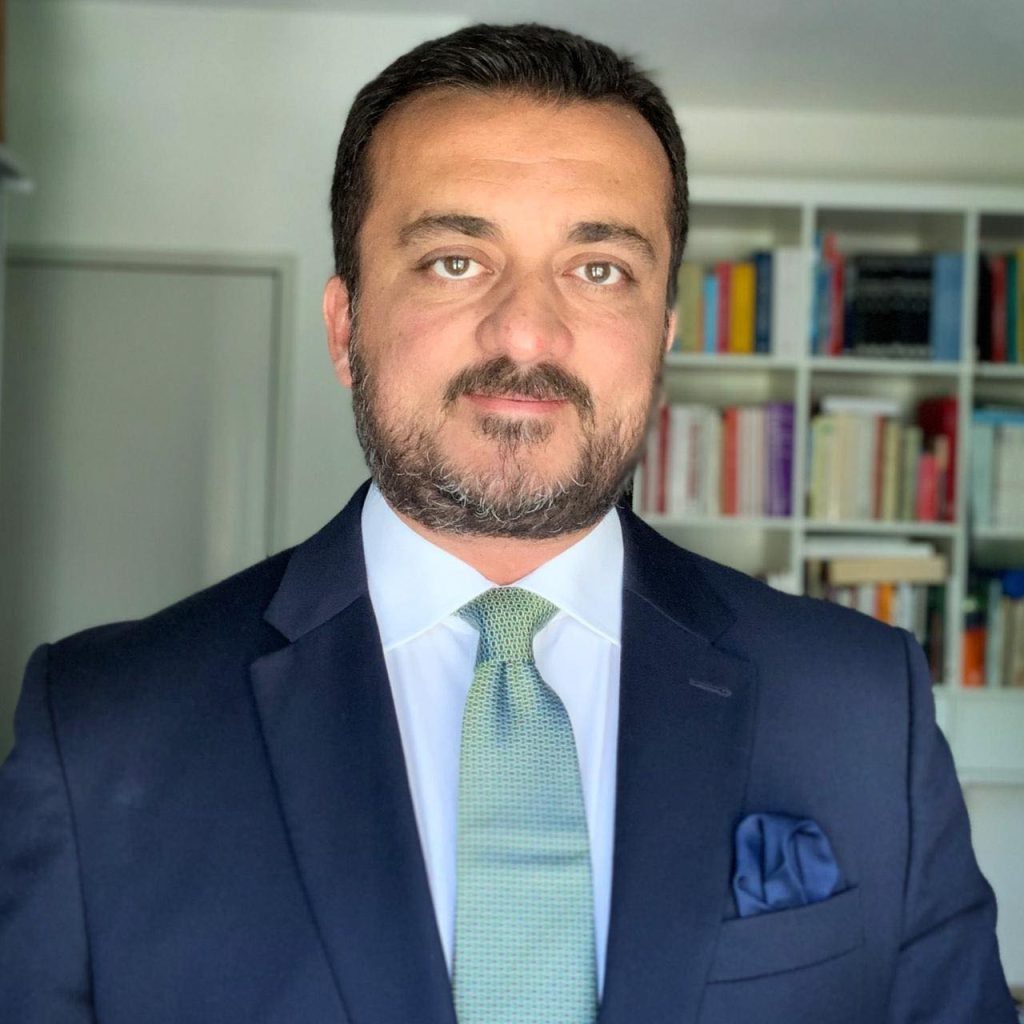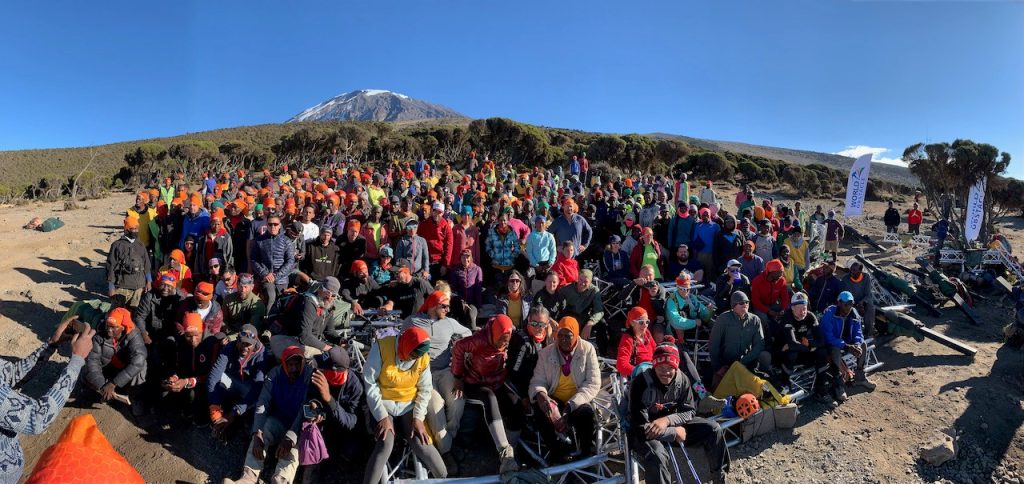The Five Key Points Underlining Social Responsibility And A Unique Sporting Example
October 21, 2021
Michel Cutait of World Obstacle provides a further look into CSR by noting down the five key points and talking through an example he has experienced during his current time with the international federation.
There is a lot of discussion about social responsibility as a necessary objective for all organizations, whether profit or non-profit, to play a more relevant role in society.
More than just giving back to society the advantages and benefits generated by their activities, social responsibility corresponds to an ethical principle that should be one of the essential values for building a better society, besides contributing to the achievement of social welfare, dignity, and peace in the last instance.
How to understand the concept of social responsibility in the world of sports, and more than that, how to materialize this value through sports events?
“When thinking about a traditional sporting event, the applicability of social responsibility seems more like a nice word than a true purpose in itself.”
Obviously, any sports organization can develop specific projects that address social responsibility, but when thinking about a traditional sporting event, with games, competitions, athletes, and spectators, the applicability of social responsibility seems more like a nice word than a true purpose in itself.
According to the most contemporary understanding, social responsibility is manifested through five dimensions, in other words, aspects that define its scope and potential:
- Firstly, the economic dimension implies an organization’s responsibility to fulfil their economic role, whether generating revenues in a large way, as well as providing profit to investors, but also ensuring that their activities are sustainable in the long term, mitigating risks and offering the necessary security to workers, investors, and society.
- The social dimension aims to ensure that organizations play a social function, that is, they should consider the impacts of their activities on society, in such a way that they can provide benefits that contribute for developing a better society.
- Third, the environmental dimension involves the responsibility of organizations towards the environment, ensuring that their activities do not generate damages, losses and liabilities, mainly to protect the natural elements such as flora, fauna, air, water and land, besides practicing measures that intend to save energy, control waste and reduce the exploitation of non-renewable resources, among other environmental impacts.
“It is not easy to materialize all these dimensions among all the obligations, duties, and responsibilities that organizations need to comply as a result of their activities.”
- The stakeholder dimension matches the need for organizations to seek a balanced and mitigated conflict between stakeholders, to prevent all forms of unethical behavior that can harm some to the detriment of others, and to ensure that the relationship between them remains positive, collaborative, and focused on the common purpose for the benefit of everyone.
- Finally, the voluntariness dimension is related to an organization’s decision to provide advantages and benefits to society without any other counterpart, interest or financial purpose, often characterized by actions of philanthropy to support people, communities and society in general through projects, programs and initiatives that offer direct benefits to the recipients.
It is not easy to materialize all these dimensions among all the obligations, duties, and responsibilities that organizations need to comply with as a result of their activities, and very often the ideal of social responsibility may be unfeasible due to economic conditions, maturity, structure, resources, and availability to accomplish all these ethical parameters.
Now imagine doing all or some of these things alongside a sporting event?
It is even more difficult because a sport event has, as its primary objective, to deliver a competition, organize the games between teams and athletes, ensure the safety of all participants, provide joy to the spectators, and celebrate sport with all the benefits and advantages that sport offers to society.

To illustrate the potential application and embodiment of the social responsibility dimensions in sport events, an example may be quite useful to understand the positive impacts that sports can result for the benefit of society.
This past September, the Altitude OCR World Championship was held at extreme altitude in the “death zone” over 18,000ft (5,486m) in the crater of on Mount Kilimanjaro, Tanzania. A unique event, organized by EP Global Events with the support of World Obstacle, was attended by dozens of courageous athletes from 26 countries, with the goal of ascending to an altitude of (5,895m) then attempted the Obstacle Course Race in the volcano crater at 5,750m.
The competition was completed with a 2-day, 2-stage run, descending a total of 4,248m through five climate zones to the final destination. The event was a great success and more than that, all of the athletes took back home not only the experience, but also world records.
But behind this event is an incredible story of social responsibility.
To carry out the event, the organizers decided to transform this competition into an initiative with strong social purposes, benefiting the whole local community, materializing the objective of social responsibility.
“Because of this, more than 10,000 people in the community ended up reaping the positive financial benefits.”
The event relied on the paid labor of about 390 local workers, men and women, who received good salaries, food, accommodation, and even high value in tips.
Because of this, more than 10,000 people in the community ended up reaping the positive financial benefits, including the families of these workers and the people involved in the local business activities.
It is important to remember that the event took place after a time when the local community had been out of work for almost two years because of the consequences of the pandemic, which turned out to be an extremely valuable economic and social stimulus for the whole community.
All the waste production, organic and inorganic rejects, were collected, separated, cleaned, and dispensed in an ecologically correct way, with these actions carried out by all participants, athletes, workers, and organizers.
In addition, the expedition’s Chief Guide was included in the challenge to break the world records to ensure that Tanzania was also represented in this achievement, serving as a symbol of pride and inspiration to all his compatriots.
“Social responsibility must be a commitment by everyone, not only by the organizations when carrying out their activities, but also by the people, professionals and individuals who lead these organizations.”
This is just one example, but through this example, it is possible to demonstrate that social responsibility can be achieved in sport events, depending on a purposeful planning that has this objective during the whole process of organizing the event, and especially the willingness to cause positive impacts for the benefit of the entire society.
Social responsibility must be a commitment by everyone, not only by the organizations when carrying out their activities, but also by the people, professionals and individuals who lead these organizations, because by understanding that we can all make a step further for the benefit of society, we will be able to turn sport into a true transformation instrument for society, bringing social welfare, dignity and peace for all mankind.
Michel Cutait is a Senior Executive Manager dedicated to the World of Sports. He is currently working as Deputy Secretary General for the World Obstacle (FISO – Fédération Internationale de Sports d’Obstacles) and as Strategy Advisor for the Brazilian Triathlon Confederation. He has a Bachelor’s degree in Law and a Masters in Law in Brazil, Marketing in Australia and a Masters in Sport Administration and Technology at EPFL (AISTS Programme) in Lausanne, Switzerland.



